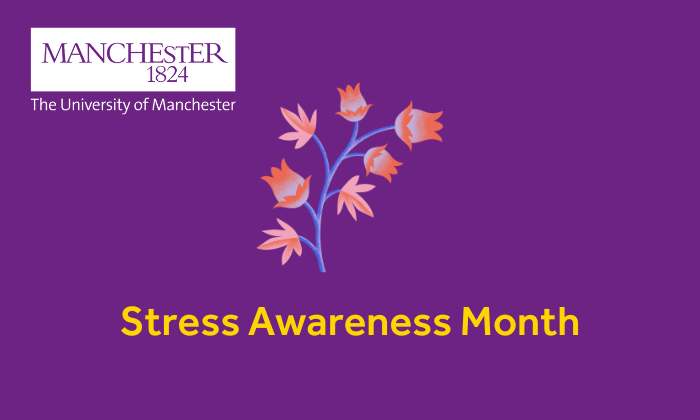Stress Awareness Month April 2024
28 Mar 2024
Navigating Stress: Shining a Light on Stress Awareness Month this April

April marks Stress Awareness Month which offers the opportunity to learn more about the causes, symptoms and support available for stress.
We can experience stress in many ways, you might feel stressed because of one big event or situation in your life. Or it might be a build-up of lots of smaller things. A key point to remember is we all experience stress in different ways and be mindful of this when talking with others about stress.
Example causes of stress:
Work related: volume of work too high, feeling unclear about role and responsibilities, lack of support in the workplace.
- Illness or injury
- Pregnancy and becoming a parent
- Infertility and problems having children
- Bereavement
- Difficult or break down of a relationships with spouses, children, parents
- Organising events such as getting married or civil partnered, house move, even a holiday!
- Being a carer
- Money worries/managing debt
- Living through a stressful community-wide, national or global event, like the coronavirus pandemic
If you are stressed, you might feel:
- Anxious, nervous or afraid;
- Like your thoughts are racing and you can't switch off;
- Unable to enjoy yourself;
- Depressed;
- Uninterested in life;
- Like you've lost your sense of humour;
- A sense of dread;
- Worried or tense;
- Neglected or lonely;
- Existing mental health problems getting worse.
Support available
If you are experiencing symptoms of stress, it is important to start taking steps towards getting help.
- Tell someone: it can be difficult opening up to someone and talking about how you are feeling but this can be a helpful first step: talk to a family member, a friend, your line manager, a trusted colleague or a professional support service such as the Employee Assistance Programme ‘Health Hero’ which is available to all staff or your GP.
- Discuss priorities and who can help support you: make a list of ‘personal’ related priorities with a family member/friend. Have a conversation with your line manager about ‘work’ priorities and what additional support you need.
- Consider what you need to look after yourself: often when we are stressed we neglect the activities that help make us feel well: focus on taking breaks during work and prioritising time outside of work to relax, look after your physical health including sleep, physical activity, eating a balanced diet, being aware of your time spent on screens and social media, do something that you enjoy (cooking a meal, trying a new or picking up an old hobby, listening to music, having a bath, spending time with animals, spending time in nature, spend time connecting with people how give you energy).
More information
